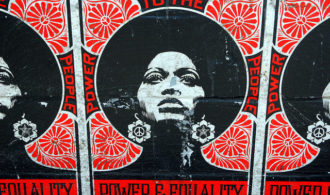This essay was originally published on Beacon Broadside in February 2017. I still agree with every single word.
February is Black History Month. Personally, I’ve always felt conflicted about a month being set aside to celebrate the achievements of African Americans in the United States, because it seems to suggest that once February is over, we can fall back into ignoring Black people’s contributions to American history.
Separate But Not Equal
In some ways, Black History Month feels like Affirmative Action, but for all the wrong reasons. It’s like somebody decided we needed to highlight the accomplishments of Black Americans since otherwise they’re not really all that noteworthy. Of course I know the origin story of Black History Month begins with Carter G. Woodson and his National Negro History Week, and I know his intentions were noble, but still, today’s Black History Month “celebrations” feel like a parade of familiar figures—Harriet Tubman, Rosa Parks, Martin Luther King, Jr.—trotted out in February and then shoved back in to the dusty Black closest until the following year. In addition to being both annoying and insulting to Black people everywhere, the consequences of today’s version of Black History Month are far more insidious.
In my opinion, Black History Month gives everybody a free pass to believe that they have “acknowledged” Black America, and at the same time it perpetuates the myth that Black people are somehow different than the rest of America. And that difference is not a positive one. And that difference does not imply equal status. For many people, Black History Month is proof positive that the contributions Black people made to American history can be covered in a single month. And it’s the shortest month at that.
The Negative Effects of Black History Month
Recently, a young Black teenager told me that he wished he weren’t Black because Black people have nothing to be proud of in America. He said when people hear about Black people, they only think about crime and poverty. That broke my heart. How does a child who has lived half of his life under an Obama presidency believe that the only things people associate Black people with are crime and poverty? After all, this is a country that’s been celebrating Black History Month since 1976.
Clearly, I can’t place this young teen’s entire racial identity crisis squarely on the shoulders of Black History Month, but Black History Month is indicative of the problem. And the problem is that “American history” has been so whitewashed, so distorted, and so thoroughly divorced from its true multicultural roots, that even people of color are ignorant of their ancestors’ true place in our nation’s creation.
Black Since the Beginning
The success of the book and movie Hidden Figures illustrates my point. Most people, myself included, never heard of the Black women who worked for NASA in the 1950s and 1960s. In fact, if you asked me if Black women were involved in our nation’s space program before the Civil Rights Movement, I probably would have said no, because like the vast majority of Americans, I never heard their story. What’s more, because of the common, one-dimensional, false narrative of the Black experience in America, a person can barely imagine that Black people were more than slaves and civil rights activists before Barack Obama took office. Where and when would we learn about the engineers and doctors and airline pilots and inventors and bankers and entrepreneurs? Obviously not during Black History Month. And obviously not in most school classrooms. (Clearly some schools were doing better than others.) The truth of the matter is that Black people and their collective contributions have been systematically erased from American history, and celebrating Black History Month is not going to fix that.
Black history is American history. It’s not separate. It’s not different. We were there for all of the good, bad, and ugly that made this country what it is today. From the Revolutionary War, to the Civil War, to putting a man on the moon, we were always there, and often in the front row for all of the action. We physically built this country, but we were also actively engaged in the planning, implementing, and designing of the structures that created the foundations of our society. We made art and music, designed clothing and cars that today are considered 100 percent American. But still in 2019 we have to fight to prove to our fellow citizens that not only have we contributed greatly, but that we simply matter.
Celebrate Black Excellence, Not Black History
In a perfect world, we wouldn’t need Black History Month, because all of our textbooks would seamlessly include the contributions of Black people in the telling of our nation’s history. In a perfect world, when people spoke in awe about the courageous life of Amelia Earhart, they would mention Bessie Coleman in the same breath. In a perfect world, we would not need a Black History Month, but we could definitely have a national holiday honoring the beauty, strength and resilience of Black people. Until that perfect day comes, I will continue to write stories and articles that broaden the narrative of the Black experience in America. And I will support other writers and storytellers who do the same.

